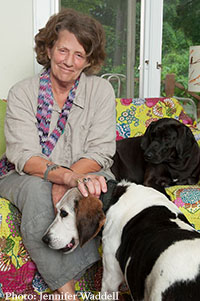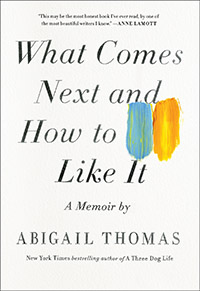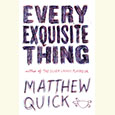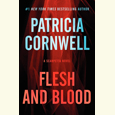Running Out of Truth
In What Comes Next and How to Like It, memoirist Abigail Thomas explores betrayal and loss and other parts of life that cannot be understood at a remove
What Comes Next and How to Like It is the latest memoir by Abigail Thomas, a writer who has inspired devotion among readers by turning the most ordinary events and human predicaments into paths toward wisdom and love. Reading What Comes Next and How to Like It feels like watching another person sift through a house full of possessions. Sometimes these things—memories, anger, grief, dread, hope—belong to the author, sometimes to her best friend of thirty-five years, sometimes to her youngest daughter, and sometimes even to a beloved dog. Following Safekeeping and A Three Dog Life, Thomas continues her gift for writing the kind of memoir we all say we’ll write some day. Her admirers include Stephen King, Elizabeth Gilbert, Anne Lamott, and Ann Patchett.
 With a humorous and self-deprecating voice, Thomas exhibits a kind of lived wisdom that often surprises her, fades, and reappears again when she needs it most. Her nonlinear narratives play with time and detail in chapters that are rarely more than a page long, and each comes with an endearing title like “Uh-Oh,” and “Names I Forget.” (The latter consists of six lines.) Thomas is a master of lists, able to render a long-fought addiction or a period of dread and loneliness in a litany of remembered objects. She keeps track of how long her grandsons have stayed with her while “figuring out their lives” by the number of meals she’s actually cooked; she calculates the steps it takes to make eyeliner look sexy but natural (napping, blinking, showering) on a woman who’s pushing seventy and preparing for a first date.
With a humorous and self-deprecating voice, Thomas exhibits a kind of lived wisdom that often surprises her, fades, and reappears again when she needs it most. Her nonlinear narratives play with time and detail in chapters that are rarely more than a page long, and each comes with an endearing title like “Uh-Oh,” and “Names I Forget.” (The latter consists of six lines.) Thomas is a master of lists, able to render a long-fought addiction or a period of dread and loneliness in a litany of remembered objects. She keeps track of how long her grandsons have stayed with her while “figuring out their lives” by the number of meals she’s actually cooked; she calculates the steps it takes to make eyeliner look sexy but natural (napping, blinking, showering) on a woman who’s pushing seventy and preparing for a first date.
This habit of sifting and cataloguing makes Thomas trustworthy as a writer, as when she delivers one of her off-handed but hard-won insights about what it may feel like to outlive the people you love most or what your little corner of the world will look like when you are gone yourself:
My chair is worn and comfortable, my dog Rosie is lying on the pillow behind my back, like a warm shawl. All three dogs are snoring in different registers, the two clocks tick out of sync, and I am simply enjoying being in this room alive. … It hits me that these bricks are going to outlast me. This room and everything in it, it’s all going to be here after I die. The pleasure leaves my body. I feel a marked detachment from my surroundings, a cooling of affection for these objects. I am experiencing my own absence, and the room without me in it is just any old room, its details of no consequence. I get one of those awful moments when I feel nothing at all.
 The “unfeeling” finally retreats, she writes, because of a dog’s “room-clearing farts,” but it never disappears entirely: “Once the carnal knowledge of your own death has jumped you, your innocent days are over. You can’t put the shit back in the pig.” What Comes Next and How to Like It is a meditation on what it means to edit your life down to its essentials: love, forgiveness, pleasure, and letting go, but it gets there by demonstrating how much of a mess those things are and will remain even after our bodies have failed.
The “unfeeling” finally retreats, she writes, because of a dog’s “room-clearing farts,” but it never disappears entirely: “Once the carnal knowledge of your own death has jumped you, your innocent days are over. You can’t put the shit back in the pig.” What Comes Next and How to Like It is a meditation on what it means to edit your life down to its essentials: love, forgiveness, pleasure, and letting go, but it gets there by demonstrating how much of a mess those things are and will remain even after our bodies have failed.
Thomas, who once worked in publishing herself, lives in a literary world: her friends are also editors and agents; her father, Lewis Thomas, was an acclaimed science writer; her daughter is a budding blogger. Advice on writing and living converge in the pages of this memoir as it does in Thomas’s previous books. When her dearest friend betrays her, a conversation about his betrayal leads to a reflection on how we find our way back to truth when all boundaries have been crossed:
It seems to me that you start out with what you know or what you think you know and you work within those ‘truthful’ boundaries until you reach some sort of wilderness of not knowing, and then you find a way through until you see an end, or you find a way through until you find the end that you’ve already seen. It can work either way: running away from the truth, or running out of it.
What makes Thomas so lovable as a memoirist is her self-professed inability to edit her life in the process of living it (“caution was never my strong suit”), but what makes her readable is her gift for distilling details into moments that resonate across their particularity to an understanding of the whole. Once, in a period of calm, Thomas considers clearing the back of her property, a spooky place of silence, stinging nettles, overgrown myrtle, and an enormous felled tree, but she decides on cutting a narrow path through it instead. In her physical and imaginative worlds, she favors a simple approach rather than a wide clearing. “So there is no conclusion but it feels like one anyway,” she tells her friend. It’s an appropriate conclusion for this beautiful rendering of a woman who has wrenched love back from betrayal and tragedy but whose time is running out.

Beth Waltemath graduated with a degree in English from the University of Virginia and worked at both Random House and Hearst magazines before leaving publishing to attend Union Theological Seminary in New York City. A Nashville native, she now lives in Decatur, Georgia.


